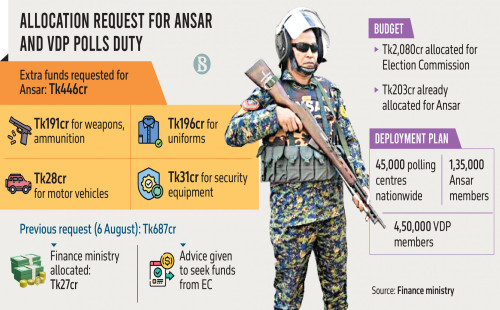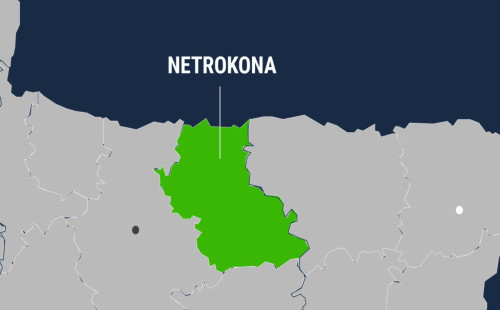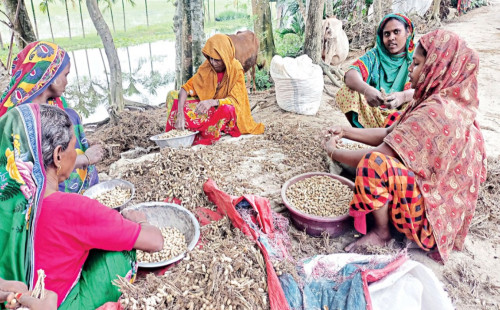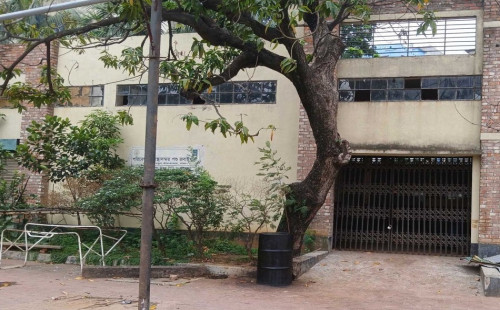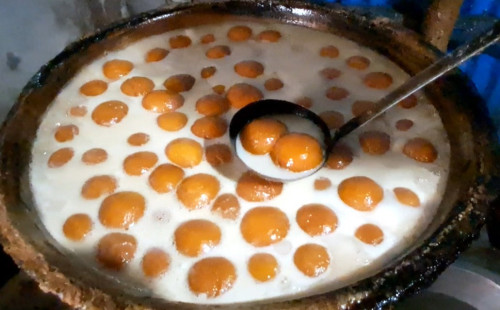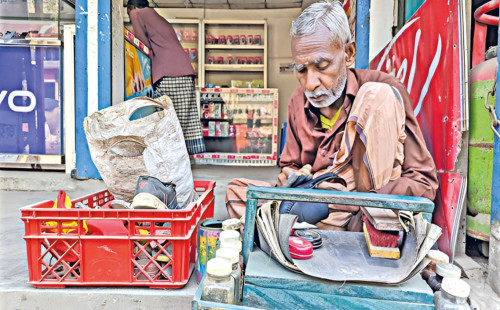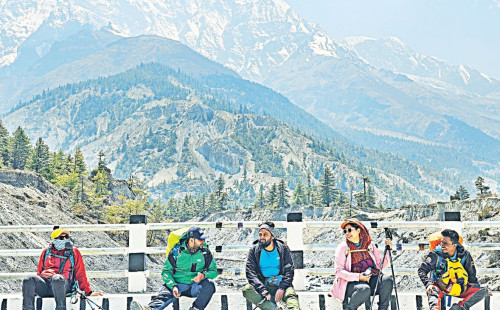Salinity threatens southern agriculture, experts urge climate-smart solutions
Salinity
continues to pose the greatest challenge to agriculture in Bangladesh's
southwestern region, with experts warning that the crisis is deepening each
year as freshwater sources shrink and traditional crops fail to survive in
increasingly saline soil.
Speaking
at a regional seminar held at the Department of Agricultural Extension (DAE)
conference room in Khulna today, speakers called for urgent adoption of
climate-resilient farming methods to safeguard food security and farmers'
livelihoods.
The event,
titled "Comprehensive Study on Existing and Viable Climate Smart
Agriculture (CSA) Technologies and Practices Considering Vulnerable People
Including Persons with Disabilities in Northwestern and Southwestern
Bangladesh", was organised by UTTARAN with technical support from HELVETAS
Bangladesh.
Experts
recommended sustainable interventions such as canal excavation for freshwater
conservation, salt-tolerant seed varieties, organic fertilisers, modern
cultivation techniques, and improved market access.
Research
findings presented at the seminar revealed stark disparities between northern
and southern farming practices. While 99.1 percent of northern farmers use
power tillers, only 77.2 percent do so in the south. Vermicompost usage stands
at 75.9 percent in the north but drops to just 6.6 percent in the south.
Combine harvesters are used by 5.6 percent of northern farmers, but none in the
south.
Southern
farmers do lead in some adaptive practices: 10-12 percent engage in pond-dike
cropping and 15-20 percent in floating vegetable cultivation-methods virtually
absent in northern districts.
Md Rafiqul
Islam, additional deputy director of Khulna DAE, stressed the need to introduce
saline-tolerant rice varieties such as BRRI dhan 97, 99 and BINA dhan 8, 10.
"Developing community seed banks and strengthening supply chain marketing
will support farmers in Satkhira, Bagerhat, Khulna and other affected
areas," he said.
Among
others, Professor Md Matiul Islam, Professor Md Rejaul Islam of Khulna
University, Tazreen Suriya Mummun of BARI, Swapan Guha of Rupantar, and
Mohammad Mahmodul Hasan of HELVETAS spoke at the seminar.



